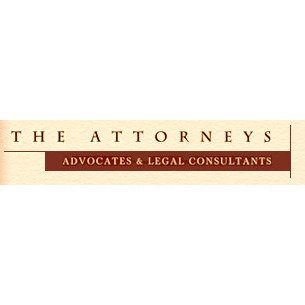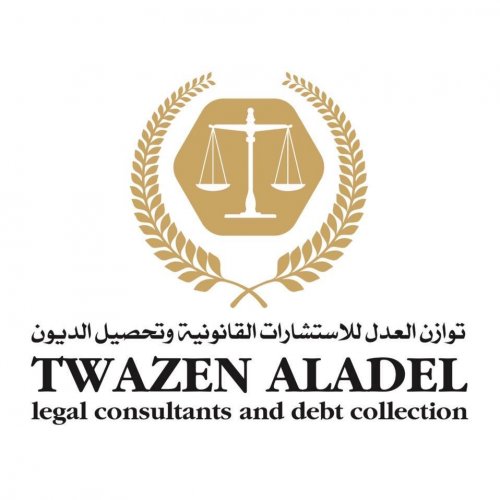Best Speeding & Traffic Ticket Lawyers in Dubai
Share your needs with us, get contacted by law firms.
Free. Takes 2 min.
List of the best lawyers in Dubai, United Arab Emirates
About Speeding & Traffic Ticket Law in Dubai, United Arab Emirates
Dubai, part of the United Arab Emirates, has stringent laws when it comes to traffic violations such as speeding. The Traffic Law instituted by the Dubai Police Force clearly states the fines, black points and other penalties expected for various offences, including speeding. Speeding in Dubai can incur heavy fines depending on how far above the speed limit you were going. Cameras are installed throughout Dubai's roads to automatically detect and report speeding vehicles.
Why You May Need a Lawyer
While paying a fine can resolve most cases, there may be circumstances where the help of a lawyer can prove invaluable. If you believe you've been wrongly penalized, a lawyer can help challenge the ticket in court. Serious offences that result in injury or death, repeated offences, or disputes involving large fines can also benefit from legal assistance. Lawyers experienced in Traffic Law can explain your rights, prepare your defence, negotiate on your behalf, and potentially even have your fines reduced or excused.
Local Laws Overview
Each emirate in the UAE has its own traffic regulations, but they're all guided by the federal traffic law. In Dubai, a "black points" system is used to deter repeat offenders. Accumulating too many points can lead to temporary or permanent license suspension. Explicit speed limits are set for different types of roads, and exceeding these limits can result in fines. The fines become more significant as the speed above the limit increases. Driving under the influence of alcohol is a serious offence and can result in hefty fines, black points, and even jail time.
Frequently Asked Questions
What’s the speed limit on Dubai's roads?
Typically, the maximum speed limit on urban roads is 60 km/h, on suburban roads it's 80 km/h, and on highways it’s generally 100 to 120 km/h. However, this may vary in certain areas and the posted speed limit should always be followed.
What if I don’t pay my traffic fine?
Failing to pay a traffic fine can result in an increase to the fine, a travel ban, vehicle confiscation, or potential jail time. It's highly recommended to pay any traffic fines promptly.
Can I challenge my traffic fine in court?
Yes, if you believe a traffic fine was incorrectly imposed, you can challenge it in court. To do this effectively, you may require the help of a lawyer.
Are traffic fines the same across all Emirates?
No, fines can vary between emirates as traffic laws are enforced at an emirate level. Always acquaint yourself with the local laws.
What are black points?
Black points are demerit points added to your driving record for traffic violations in Dubai. Too many points can lead to a suspended license.
Additional Resources
The official website of Dubai Police and UAE Ministry of Interior provide details about traffic laws, fines, and black points. For legal guidance, law firms specializing in Traffic Law can be consulted. To study the UAE federal traffic laws, you can refer to the UAE Traffic Law PDF available online.
Next Steps
If you require legal assistance, your first step should be to consult a lawyer who specializes in Traffic Law. They can review your case, advise you on your rights and options, help you prepare if a court appearance is required, and in some cases, help you reduce the penalties associated with your offence.
Lawzana helps you find the best lawyers and law firms in Dubai through a curated and pre-screened list of qualified legal professionals. Our platform offers rankings and detailed profiles of attorneys and law firms, allowing you to compare based on practice areas, including Speeding & Traffic Ticket, experience, and client feedback.
Each profile includes a description of the firm's areas of practice, client reviews, team members and partners, year of establishment, spoken languages, office locations, contact information, social media presence, and any published articles or resources. Most firms on our platform speak English and are experienced in both local and international legal matters.
Get a quote from top-rated law firms in Dubai, United Arab Emirates — quickly, securely, and without unnecessary hassle.
Disclaimer:
The information provided on this page is for general informational purposes only and does not constitute legal advice. While we strive to ensure the accuracy and relevance of the content, legal information may change over time, and interpretations of the law can vary. You should always consult with a qualified legal professional for advice specific to your situation.
We disclaim all liability for actions taken or not taken based on the content of this page. If you believe any information is incorrect or outdated, please contact us, and we will review and update it where appropriate.

















